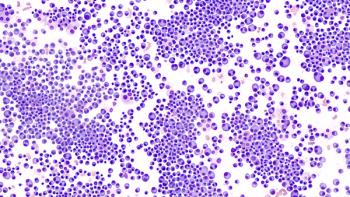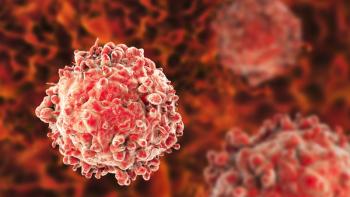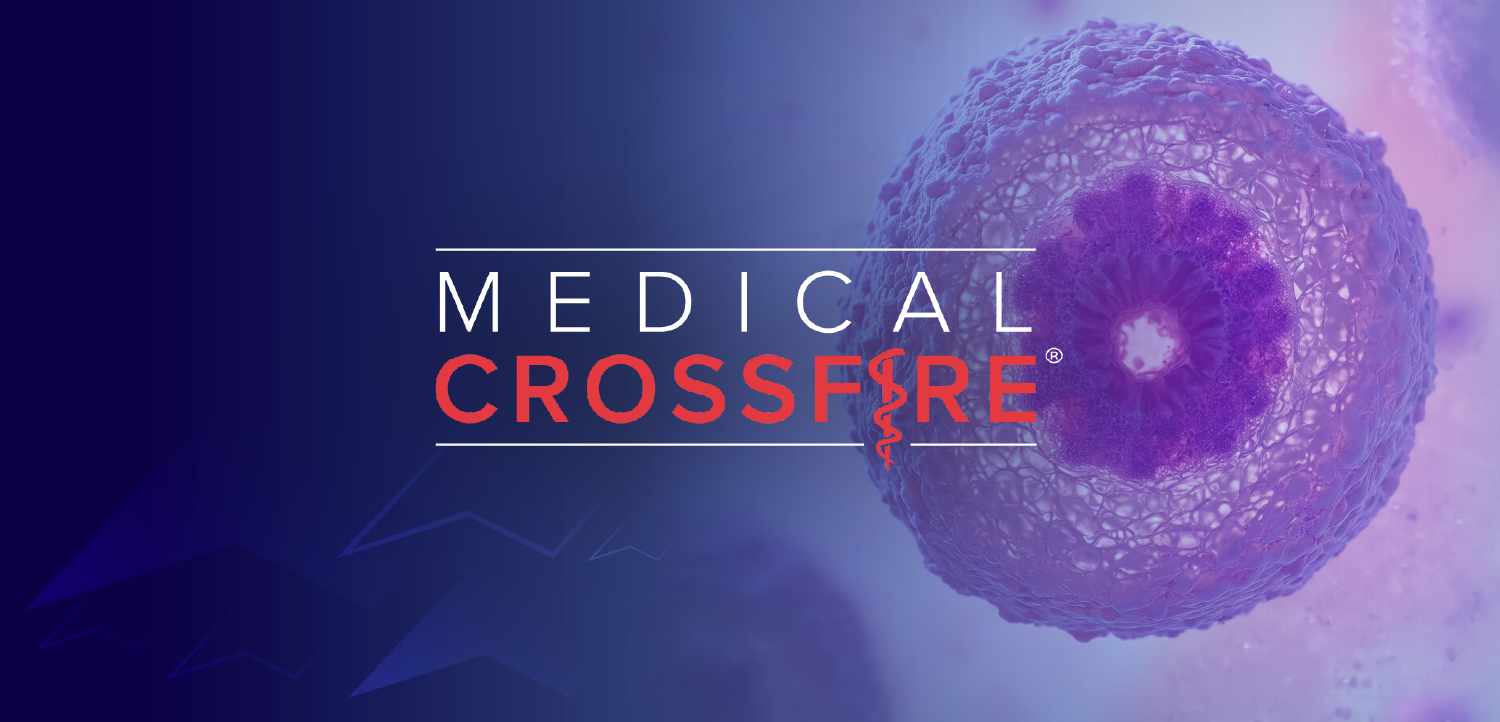
Addition of Concomitant TTFields Induces OS Benefit in Unresectable Pancreatic Cancer
The phase 3 PANOVA-3 trial, designed to evaluate concomitant treatment with tumor treating fields and chemotherapy, met its primary end point of overall survival in unresectable, locally advanced pancreatic adenocarcinoma.
Compared with chemotherapy alone, the concomitant use of adding tumor treating fields (TTFields) to gemcitabine plus nab-paclitaxel (Abraxane) led to a statistically significant improvement in overall survival (OS) as frontline therapy in patients with unresectable, locally advanced pancreatic adenocarcinoma.1
As a result, the phase 3 PANOVA-3 trial (NCT03377491) met its primary end point.
In the intention-to-treat population (n = 571), the median OS was 16.20 months with TTFields plus gemcitabine and nab-paclitaxel vs 14.16 months with chemotherapy alone (HR, 0.819; P = .039). The 12- and 24-month OS benefit rates favored the TTFields therapy plus chemotherapy arm by 13% and 33%, respectively. TTFields therapy was also well tolerated, and the safety profile was consistent with that from prior clinical trials.
Findings from PANOVA-3 will serve as the basis for the company’s planned submission seeking regulatory approval of TTFields in the United States, European Union, Japan, and other key markets in this population. Complete findings from the trial will be presented at an upcoming scientific conference.
“As a researcher and clinician, I have experienced the challenges of developing treatments in pancreatic cancer. It is exciting to see the PANOVA-3 trial achieve the positive primary end point of OS, a landmark outcome for this field,” Vincent Picozzi, MD, medical oncologist and investigator in the PANOVA-3 trial, said in a news release. “These data for TTFields are very promising, especially in this difficult-to-treat patient population.”
PANOVA-3 is a prospective, randomized, open-label, controlled phase 3 trial designed to evaluate the efficacy and safety of TTFields therapy plus gemcitabine and nab-paclitaxel vs gemcitabine and nab-paclitaxel alone in patients with newly diagnosed, locally advanced pancreatic adenocarcinoma.
Findings from the prior phase 2 PANOVA trial (NCT01971281) served as the basis for the ongoing PANOVA-3 trial.2 Data from this trial indicated that among patients with newly diagnosed, locally advanced, or metastatic pancreatic ductal adenocarcinoma the median progression-free survival (PFS) was 12.7 months (95% CI, 5.4-not available) and the median OS was not reached with TTFields plus gemcitabine and nab-paclitaxel. Grade 3 or greater adverse effects (AEs) occurred in 85% of patients, but no TTFields-related serious AEs occurred. Median PFS and OS were not reached in the subgroup of patients with locally advanced disease.3
To be eligible for enrollment in PANOVA-3 patients needed to have received a diagnosis of unresectable, locally advanced, nonmetastatic, de novo pancreatic adenocarcinoma per National Comprehensive Cancer Network criteria and an ECOG performance status between 0 and 2. Patients were excluded if they had received concurrent antitumor therapy beyond gemcitabine and nab-paclitaxel, prior palliative treatment to the tumor or antitumor treatment for any other cancers within 5 years of enrollment, and significant comorbidities, contraindicative allergies, pregnancy, or were breastfeeding.
The primary end point is OS. Secondary end points include PFS, local PFS, objective response rate (ORR), one-year survival rate, quality of life, pain-free survival, puncture-free survival, resectability rate, and toxicity.1
A total of 571 patients were enrolled in the study and followed for a minimum of 18 months. Per the protocol, patients were randomly assigned 1:1 to 150 kHz of TTFields for at least 18 hours/day plus 1000 mg/m2 of gemcitabine and 125 mg/m2 of nab-paclitaxel on days 1 and 15 of every 28-day cycle, or chemotherapy alone until disease progression.3 Patients will be stratified by performance status and geographical region.
“PANOVA-3 is the first and only phase 3 trial to demonstrate a statistically significant benefit in OS specifically in unresectable, locally advanced pancreatic cancer, and is Novocure’s third positive phase 3 clinical trial in the last two years,” Nicolas Leupin, MD, PhD, CMO of Novocure, said in a news release.1 “We are grateful to the patients and investigators for their participation in the trial, and we look forward to sharing the full data at an upcoming medical conference.”
Novocure will also continue to follow patients in its phase 2 PANOVA-4 trial (NCT06390059), which is evaluating the addition of TTFields to atezolizumab (Tecentriq), gemcitabine, and nab-paclitaxel in patients with metastatic pancreatic cancer.
The primary end point is disease control rate. Secondary end points include OS, PFS, one-year survival rate, ORR, PFS at 6 months, duration of response, and toxicity. The study is designed to enroll 76 patients.
PANOVA-4 has completed enrollment, and data are expected in 2026.
References
- Novocure announces positive topline results from phase 3 PANOVA-3 clinical trial of tumor treating fields (TTFields) therapy for pancreatic cancer. News release. Novocure. December 2, 2024. Accessed December 2, 2024. https://www.novocure.com/novocure-announces-positive-topline-results-from-phase-3-panova-3-clinical-trial-of-tumor-treating-fields-ttfields-therapy-for-pancreatic-cancer/
- Rivera F, Benavides M, Gallego J, et al. Tumor treating fields in combination with gemcitabine or gemcitabine plus nab-paclitaxel in pancreatic cancer: results of the PANOVA phase 2 study. Pancreatology. 2019;19(1):64-72. doi:10.1016/j.pan.2018.10.004
- Babiker HM, Macarulla T, Philip PA, et al. Phase 3 PANOVA-3 study: tumor treating fields (TTFields) therapy concomitant with gemcitabine and nab-paclitaxel (GnP) for front-line treatment of locally advanced pancreatic cancer. J Clin Oncol. 2023;41(suppl 16):TPS4199. doi:10.1200/JCO.2023.41.16_suppl.TPS4199
Newsletter
Knowledge is power. Don’t miss the most recent breakthroughs in cancer care.

















































































